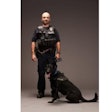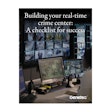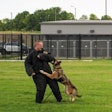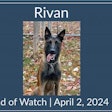
You wouldn't know it to look at me, but I am one of the greatest strategic geniuses in history. You scoff, I know. But I have won battles leading Roman legions against Carthage, American patriots against the British redcoats, troops on both sides of the American Civil War, and Allied forces against the Nazis.
Of course, all of my martial triumphs have been on my iPad. And believe me I am not deluded enough to believe that the strategies I use to win those games would actually work in the real world. After all, real generals don't have a god-like view of the terrain and the opposing forces, and they don't get to quit the battle and start over when all is lost. It would be the ultimate display of arrogance for me to believe that because I can lead armies on an iPad that I could do it in the real world or pretend to tell real warriors their business.
Which is exactly what many reporters, bloggers, and just plain opinionated folks do with police work. Just because they've read a book, or done some academic research, or watched a few cop movies and TV shows, they have the gall to tell you what you did "wrong" in any given situation.
The most blatant example of this kind of media and public second-guessing of officers in a long time happened this summer. It seems that just about everybody has an opinion on the performance of the responders at the June 12 terror attack on Orlando's Pulse nightclub. One malicious blogger even called the officers who responded to that horror "cowards." I bet that adam henry has never had to face live fire.
All of this criticism stems from the fact that a lot of armchair SWAT commanders think the Orlando SWAT team did not act decisively enough at Pulse. The point of contention is that it took nearly three hours from the time the SWAT team arrived until the incident was over.
A lot of what happened to officers at Pulse was just plain bad luck. And that's what can happen in just about any armed conflict. The first officers responding went in and did exactly what they are expected to do. They fought it out with the terrorist. They just had the misfortune to force the terrorist to retreat back into the bathrooms of the club where many people had taken refuge. At that point the terrorist was no longer an active shooter, he was a hostage taker.
And that's about when the SWAT team arrived. All of the critics of the Orlando police response at Pulse say the SWAT team should have charged in, guns blazing, and taken out the terrorist. Those people are idiots. They believe that the officers on the scene and especially the SWAT commander knew everything we now know about this terror attack. That's computer game mentality. The SWAT commander and the other officers on the scene were dealing with a terrorist, who deliberately deceived them into believing he had explosives. Orlando SWAT truly believed that if an attempt was made to storm the restrooms that the terrorist would have detonated an explosive device and killed all of the hostages.
The kind of second-guessing that people have done to the Orlando SWAT team and all of the responders at the Pulse nightclub terror attack makes me sick. I'm disgusted by it. Second-guessing law enforcement officers who have to make life-and-death decisions has become an epidemic in this country. It doesn't matter if it is a SWAT team at an active shooter incident or a patrol officer who had to use deadly force on the street, people who have never served in law enforcement are criticizing the actions taken by officers and believing they could do it better. They do this based on information that was gathered long after the incident.
Real armed conflicts are not video games. The combatants don't have a god-like view of all aspects of the engagement and there are absolutely no do-overs. It's important for the public and the media to realize that while there is value in examining and analyzing what happened during an incident so that police can respond more effectively in the future, there is absolutely no benefit to the public's safety in blaming officers for doing what they thought was right based on the information they had at the time.



















